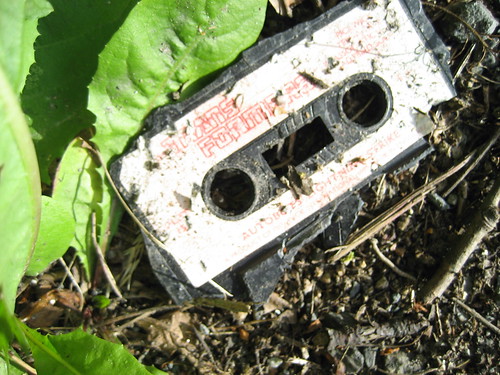Show notes:
Episode 2 (Wet Dog Fur Wine and Brene Brown)
Make sure your wine never tastes like wet dog fur. huh?
Spark my muse is The podcast for curious creatives types, wine newbies, and those willing to put up with my occasional silliness. Thank you so much for sharing your time with me.
Podcast: Play in new window | Download (Duration: 10:45 — 9.9MB) | Embed
Subscribe to Spark My Muse Apple Podcasts | Spotify | Email | TuneIn | RSS | Subscribe to Spark My Muse
Today:
How wine can go to the dogs and how to best store wine in the wine segment.
Plus, a bit about a topic and a book that has made a huge difference in my life.
This episode of the podcast is brought to you by:
Dog in the Gap
Having a pet in your care, who helplessly depends on your for life and well being can teach you a lot of things. 10 essays both funny and insightful written by 2 authors and plenty of memorable photos.
Or get the bonus addition for $1 more that has an extra essay and non public video links, and other assorted goodies.
Name Your Link
Today’s wine segment!
Why might your wine taste like wet dog fur….and what to do about it?
Basic Stats:
A wine bottle has 25.33 oz. (750ml).
A serving (a glass) of wine is 5 oz . (Half way up the glass is full. Where the glass is widest (aroma reasons in the design)
1 bottle = five glasses.
If your wine smells stale or like wet dog fur…it is Corked!
(The cork is not working and too much air has mixed with the wine.)
Wine last 24 hours if the air is pumped out
Here’s the one I recommend we use it at work. It pays for itself after two uses.
Wine lasts only a few hours if it’s not pumped. It’s not harmful, but it won’t taste its best. Pushing the cork back in won’t help too much because air is trapped in there.
Another reason Wine is stored on its side to expand the cork. A bottle corked with a plastic cork won’t be helped by horizontal storage.
On the next PODCAST – I’ll talk about my favorite tool for opening wine and why, and the bottle opening tools you should (probably) avoid !
Now to spark your Muse
Brené Brown’s work made its mark on me before she did her famous 1st TED TALK which lead to you famous ins TED Talk on her research about shame and vulnerability at the University of Houston.
The topics in the book and some of the passages I’ll read to you have really gained new significance because putting up a podcast is risky. I feel vulnerable and I feel like I might get rejected. Some people won’t like it and I can’t change that. I don’t want to fail. And I don’t want to look like an idiot. And looking like an idiot is extremely probable.
When we are about to step out into unknown territory or if we doing something that makes us more vulnerable the two main things we think are “who do you think you are?” and “You’rd going to look like a fool” and I might add one to that “You won’t do it right” (it ’s related to the 2nd one) Maybe you can think of others that come to you mind.
We seem okay to handle other people’s vulnerability but really reluctant to risk that ourselves.
Excerpts from Daring Greatly:
Pg 35 “I define vulnerability as uncertainty, risk and emotional exposure”
My note: We can’t risk feeling vulnerable if we are dealing with shame.
pg 68 “people who don’t experience shame lack the capacity for empathy and human connection”
My note: Social also social pain. We fear rejection and isolation.
pg 67 “shame derives its power from being unspeakable”
Language and story bring light to shame and destroy it
pg 71
Guilt is “I did something wrong”
Shame is “I am bad” (or “I am something wrong”)
• When new feel shame we lash out, get anxious, hide, or numb out, and really we need to do the opposite of those things to have victory.
• Instead of lashing out or hiding we need to reach out, to some one we can trust.
• Instead of overcompensating we have to cut ourselves a break. “I make mistakes. I’m moving on past this one.”
Pg 80 Brené says “If I own the story I get to write the ending.” I just heard a fascinating TED TALK from Monica Lewinsky and she sounds like she’s taking this advise. She said it was time to take back her story and control her own narrative.
Reaching out and being honest creates an environment of empathy, and that’s really why I’m sharing all this with you.
Don’t be afraid to create and do things that are your passion. And mess up while doing them. I’m messing up a lot, but I’m trying to not let those mistakes put me in a choke hold of shame and inaction.
I hope you will be inspired to do the same.
Thanks for listening today!
Or if you have read Daring Greatly, what was the most powerful thing you learned. I’d love to hear from you! Leave comments at sparkmymuse.com or the email contact@sparkmymuse.com
subscribe to the podcast….tell your friends what you and I have been up to. See you soon.
For just $1 you can help the show purchase better sound equipment for better quality in future podcasts!
Special perks and rewards are available too. Join with the Spark My Muse community at the Spark My Muse page at Patreon! Click the image for more info.





